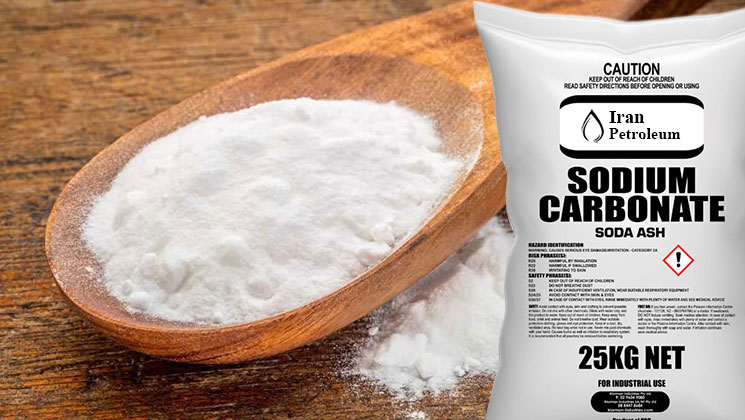Sodium Carbonate (Soda Ash)
Sodium Carbonate (Soda Ash)
In this article, we will discuss the nature of sodium carbonate, and its characteristics. It is also intended to provide the readers with efficient information on various types of it, their unique features, and applications. Moreover, it provides an explanation about Iran’s sodium carbonate production, and its privileges.
What is sodium carbonate?
Sodium carbonate, also known as soda ash, is a water-soluble white solid compound with the chemical formula Na2CO3. It is an odorless basic salt that has various applications across different industries. It is a white powder with a melting point of 851°C and a density of 2.54 g/cm³. The material is highly soluble in water, forming an alkaline solution that has a pH of around 11.
Soda ash is classified as a basic salt due to its alkaline nature and can react with acids to form carbon dioxide gas. It is also an electrolyte that can conduct electricity when dissolved in water. This is due to the presence of sodium ions and carbonate ions in the compound.
Specific characteristics of Soda Ash
Sodium carbonate has several unique characteristics, which include:
Solubility: It exhibits high solubility in water with a solubility of approximately 22 grams per 100 milliliters at room temperature. This characteristic renders it useful in various applications such as water softening, detergent production, and soap manufacturing.
Alkalinity: It is a naturally occurring alkaline chemical compound. This property makes it useful in various industrial processes, such as the production of glass, paper, and textiles.
Reactivity: It is highly reactive with acids. When it comes into contact with an acid, it undergoes a chemical reaction that produces carbon dioxide gas. This property makes it useful in a variety of chemical reactions and industrial processes.
Hygroscopicity: It is hygroscopic in nature, meaning it can readily absorb moisture from the air. This property makes it useful as a drying agent in various applications such as in the production of certain chemicals and as an additive in detergents.
Melting point: It has a melting point of approximately 851°C (1564°F), which makes it an ideal substance for high-temperature applications. This property enables it to be used in the production of ceramics and glass, where it can withstand extreme temperatures without undergoing significant changes in its chemical structure.
Click on the link below to read more:

Comments
Post a Comment